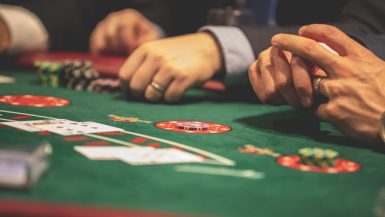What exactly is pathological gambling?
Pathological gambling is understood as a phenomenon that prevents a person from resisting the impulse to play.
However, the classification of this disorder as a psychological illness has created some controversy over the last few years.
Firstly, gambling was classified as an impulse control disorder in which the person suffering from it does not have enough resources to resist his or her impulses to play.
However, subsequently, a great deal of research reformulated the basis of this mental illness, and it was concluded that pathological gambling constitutes an addictive disorder.
Thus, gambling is not characterized by a simple inability to control the impulses to play, but rather the person suffering from this psychological disorder develops an addiction to gambling.
Pathological gambling thus resembles in many ways chemical addictions or drug addictions.
While a drug addict seeks and desires at all times the consumption of a substance for his well-being and gratification, a gambler does the same with gambling.
Therefore, gambling ends up being a behavioral addiction, in which the person needs to play repeatedly to cover the demands of gratification of his brain, seeking for the best payout casinos.
When a gambling addict deprives himself of his most precious desire, that is to say, of the game, he can experience sensations similar to those suffered by a drug addict when he cannot consume.
With this more than brief review of this mental disorder, we clearly see that the person who suffers from gambling is hooked on it, so overcoming this addiction is always going to be a very complicated task.
Next we will discuss 3 tips that can be very useful to help a gambling addict to overcome his or her gambling addiction.
1. Understand your problem
The first step we must take if we want to help a gambling addict reverse his situation is to understand well what gambling is.
As we have mentioned before, gambling is an addiction, a behavioral addiction, but in the end it is very different from a substance addiction.
Thus, we must understand that a gambler is hooked on gambling in the same way that a cocaine addict is hooked on cocaine.
Understanding his problem is a key element since people who are not addicted to any substance or behavior can have a hard time understanding how someone can get so hooked on something.
However, we can do little to help a gambler if we are not able to understand what is happening to him and what role gambling plays in his head.
We may find it very reprehensible for a person to become addicted to gambling or some substance, creating problems both for himself and for those around him.
However, if we let ourselves be carried away by possible reproaches or recriminations towards the person who suffers from gambling, it will be very difficult for us to be able to help him.
Therefore, it is important that we focus on the present, on the situation he is living and on the difficulties he may have regarding gambling.

2. Ask without judging
So far we know that gambling is an addiction in which the person is forced to play in order to respond to his psychological demands.
However, not all gambling addicts present their addiction in an identical way, so we have to find out how the person we want to help lives with gambling.
Also, we must know what thoughts the gambler has about his addiction.
Does he identify gambling as pathological? Does he consider himself addicted to gambling? Is he aware of the problems it causes? Does he want to change his personal situation? Would he like to stop gambling and live a more organized life?
All these aspects must be identified before we can start helping you, since depending on your personal situation, it will be necessary to do some things or others.
It will be very different if we want to help a gambler who identifies his relationship with gambling as an addiction and who is convinced that he wants to overcome it, than if we want to help a gambler who does not even acknowledge having a problem with gambling.
In order to do so, it is important to ask questions like the ones we have asked before without making any previous judgement.
It is better for the person to answer according to his own thoughts than on the basis of what you tell him.
For example, if a gambler denies having a problem with the game, it won’t help if you say yes and he has to stop playing, because he will continue to analyze his relationship with the game based on his previous thoughts.
No matter how much he insists, no gambler will stop playing if he doesn’t want to, just as no drug addict will stop using if he doesn’t propose to.
3. Relate the game to problems
If from the previous section we extract that the person suffering from pathological gambling does not identify the game as a problem, we must make him/her see it in a skilful way.
As we have said before, if a gambling addict is not aware that he is suffering from a gambling addiction, it will be useless to tell him.
In this way, there are more effective techniques than constantly repeating to a gambler who has a problem with the game and has to stop.
One of them is to relate the game he plays every day to possible problems he may have had.
A gambler can deny his addiction to the point of exhaustion in order to continue playing without any remorse, but it will be harder for him to avoid awareness of the problems caused by his own gambling.
This task can be relatively simple, as pathological gambling often causes a large number of problems.
Waste of money, economic problems, couple conflicts, family problems, decrease in friendships, sleep problems, alcohol consumption, work conflicts, decrease in performance, loss of health…
These are just a few examples of the problems that gambling has most likely caused for a gambler.
Talking about these problems and relating them to the hours he has spent playing is the most effective method for the gambler to become aware that his relationship with the game may be harming him.



